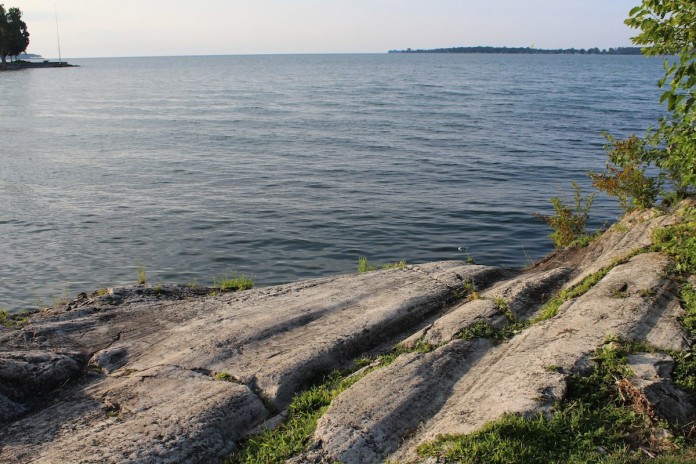(This story is developing. Check back for updates.)
*Updated 2/28, 2:30 p.m.
SALEM, Ohio — A federal judge struck down the Lake Erie Bill of Rights, Feb. 27, saying it was “not even a close call.”
“LEBOR supporters knocked on doors, engaged their fellow citizens, and used the democratic process to pursue a well-intentioned goal: the protection of Lake Erie,” wrote Judge Jack Zouhary.
The bill, however, does not achieve its goal, he said.
“Its authors ignored basic legal principles and constitutional limitations, and its invalidation should come as no surprise,” Zouhary wrote.
Toledoans voted in the Lake Erie Bill of Rights, in February 2019, in an effort to protect the lake from polluters, following a three-day period in 2014 when the city water was unsafe to drink due to pollution in the lake.
The bill gave Toledo citizens the right to sue polluters on behalf of the lake and declared both that Toledo citizens had the right to a clean and healthy environment, and that Lake Erie itself had a right to exist, flourish and naturally evolve.
The move sparked extensive national and international conversations about rights of nature.
Drewes Farms Partnerships, of Wood County, brought a lawsuit against the City of Toledo the day after the bill passed. The suit said the bill was unconstitutional and put the farm at risk. The state of Ohio later joined the suit, both parties asking the court to invalidate the bill.
Zouhary ruled in favor of the farm and the state of Ohio, saying that the bill was unconstitutionally vague and exceeded Toledo’s power as a municipal government.
Issues
There are several issues with the bill that Zouhary listed. The first is the vagueness of the bill. The bill does not define what actions would infringe Lake Erie’s rights, or where the lines between clean and unclean or healthy and unhealthy environments are.
Because the terms are so vague, spreading even small amounts of fertilizer, or things like catching fish, driving a gas-fueled vehicle, pulling up weeds, planting corn and more could all violate the bill, Zouhary noted.
“LEBOR’s authors failed to make hard choices regarding the appropriate balance between environmental protection and economic activity. Instead, they employed language that sounds powerful but has no practical meaning,” Zouhary wrote.
There are similar issues with LEBOR’s provision on Toledoans’ rights to self-government.
LEBOR also claimed that state laws that conflicted with it were invalid. It is, however, still a municipal law, and Zouhary noted that state laws generally supersede municipal laws..
“Lake Erie is not a pond in Toledo. It is one of the five Great Lakes and one of the largest lakes on Earth, bordering dozens of cities, four states, and two countries. That means the Lake’s health falls well outside the City’s constitutional right to local self-government,” he wrote.
Lawsuit
Ohio Farm Bureau publicly supported Drewes Farms in the lawsuit.
Zouhary granted an injunction in March 2019 that prevented the bill from being enforced until further review.
Toledoans for Safe Water, a nonprofit that organized to create and pass the bill, attempted to intervene as a defendant last spring, but was denied. The group did submit a brief in support of the city in 2019.
The Ohio budget bill, passed in July 2019, included language that prohibited Ohio citizens from participating in court on the lake’s behalf and declares that nature and ecosystems do not have standing in court.
Emails uncovered in a freedom of information request from a community rights activist revealed the Ohio Chamber of Commerce played a role in getting that language added to the budget bill.
That language could not affect the lawsuit, which was already pending when the budget bill passed, but it could have implications for future ballot initiatives similar to LEBOR.
Both parties filed motions for judgment in June and August of 2019. There was a hearing for the motions, Jan. 28, about a month before Zouhary made his decision.
Response
Adam Sharp, executive vice president for Ohio Farm Bureau, applauded Mark Drewes, of Drewes Farms Partnerships, for taking on the lawsuit, and expressed appreciation for Zouhary’s decision.
“It is as clear today as it was one year ago that LEBOR was invalid and counterproductive to the real measures being taken for clean water in Ohio,” he said.
“Let’s save Lake Erie — but do it legally,” said Dave Yost, Ohio’s attorney general. His office represented the state in the case.
Toledoans for Safe Water called the decision unfortunate, but predictable, in a press release. The group called on the city to appeal the decision, and on Toledo residents to continue pushing for change.
While LEBOR has been declared invalid, Zouhary noted that Toledo probably could come up with legislation to reduce pollution with careful drafting. He pointed to a Madison, Wisconsin, ordinance that restricted the use of fertilizers that contained phosphorus within city limits as an example.











